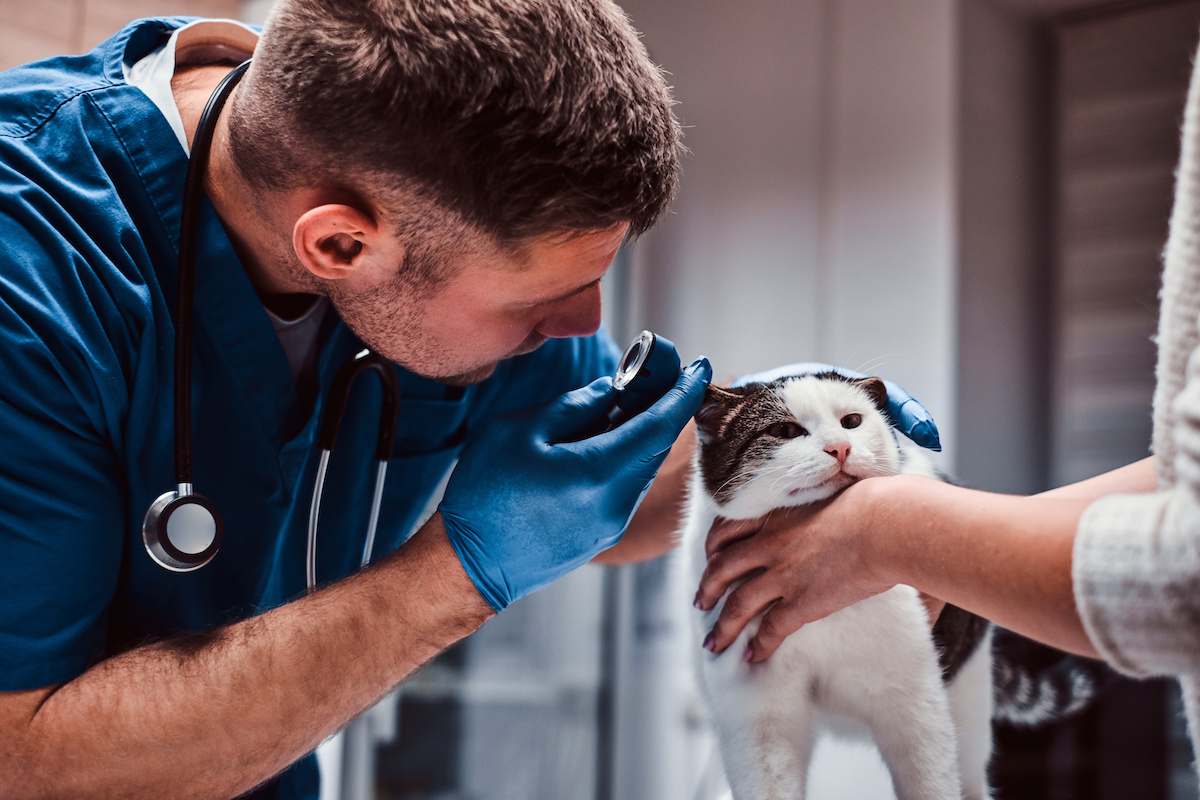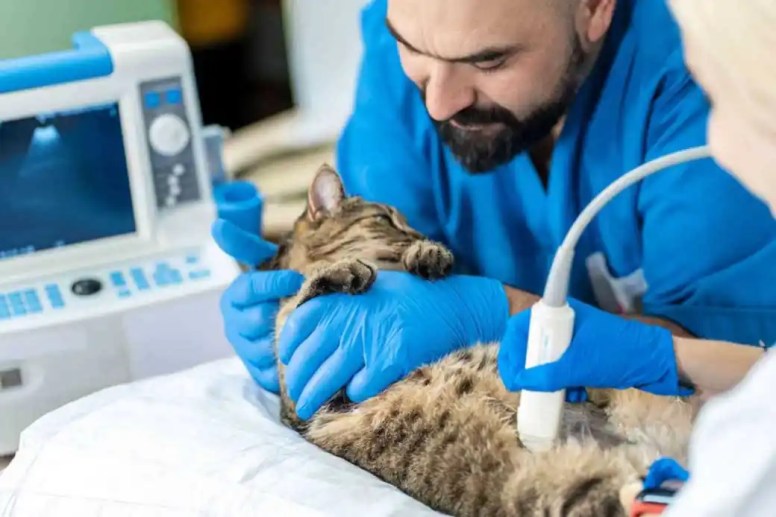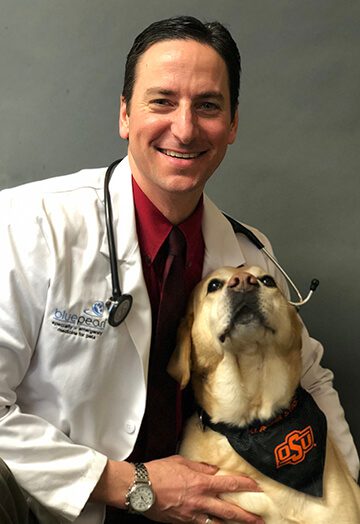Keep Your Pet Healthy with Regular Pet Health Checkups from Trusted Vets
Keep Your Pet Healthy with Regular Pet Health Checkups from Trusted Vets
Blog Article
Vaccination Standards From Your Relied On Veterinarian
Inoculation guidelines supplied by your relied on vet play a critical function in protecting your animal's health and wellness. Core injections are essential for all animals, while non-core vaccines can be customized to environmental direct exposures and certain way of lives. Understanding the subtleties of vaccination timetables, which start as early as 6 to eight weeks, is vital for optimal protection. Furthermore, attending to common mistaken beliefs bordering injections can further boost pet proprietors' confidence in these safety nets. As we check out these essential elements, it becomes progressively clear why routine consultations with your veterinarian are essential for informed decision-making.

Relevance of Inoculations
Inoculations play an essential function in securing family pets versus a series of avoidable illness. By promoting the immune system to identify and deal with certain pathogens, vaccinations dramatically minimize the incidence of transmittable illness that can affect a pet's wellness and durability. Not only do inoculations secure private animals, but they also add to herd resistance, consequently decreasing the overall frequency of conditions in the family pet populace.
Timely inoculations assist to reduce the spread of diseases such as rabies, parvovirus, and distemper, which can have extreme repercussions for both humans and pets. Furthermore, inoculations are typically a requirement for boarding centers, grooming solutions, and pet dog parks, making them vital for those who desire to mingle their family pets.

Core Injections for Animals
While the specific inoculation needs of pets can differ based on individual variables, core vaccinations are widely suggested to safeguard versus the most serious and typical diseases (Pet Health Checkup). Core injections are those regarded vital for all pets, no matter their lifestyle or geographical location, as they guard versus possibly fatal and very contagious ailments
For pet dogs, the core vaccinations include those for canine distemper, parvovirus, adenovirus (liver disease), and rabies. Canine distemper is a viral condition that affects the respiratory system, gastrointestinal, and nerves. Parvovirus is understood for creating severe intestinal illness, especially in pups. Adenovirus can result in liver condition, while rabies is a zoonotic disease that postures a danger to both pet dogs and people.
In felines, core injections incorporate feline panleukopenia, feline calicivirus, feline herpesvirus (rhinotracheitis), and rabies. Feline panleukopenia is a very contagious viral disease that affects the immune system and intestines. Calicivirus and herpesvirus are major factors to upper respiratory system infections in pet cats, while rabies continues to be a vital concern for public health.
Consult with your vet to ensure your pets receive their core inoculations on time.
Non-Core Vaccines Explained
Non-core vaccinations are customized to resolve details threats related to a pet dog's atmosphere, direct exposure, and way of living to certain illness. Unlike core vaccines, which are universally suggested for all pets, non-core vaccines are taken into consideration based on private conditions. These vaccines are particularly important for pets that might run into special microorganisms due to their geographical area, traveling practices, or tasks.
Instances of non-core vaccines consist of those for Bordetella bronchiseptica, which is linked to kennel cough, and Lyme illness, triggered by ticks. Pets that often interact with various other animals, visit homepage such as those in boarding centers, canine parks, or brushing environments, might benefit from Bordetella inoculation. Similarly, if you stay in an area where Lyme condition is common, vaccinating versus this disease can be a prudent selection for outdoor-loving pets.
Various other non-core vaccines might consist of those for leptospirosis, canine influenza, and feline leukemia, depending upon the specific danger aspects existing. It is vital to have a complete conversation with your veterinarian regarding your pet dog's lifestyle and the prospective demand for these vaccines, guaranteeing a customized vaccination technique that ideal protects your fuzzy friend.
Vaccination Arrange Review

As pets develop, it is very important to stick to the recommended booster vaccinations. Veterinarian Enterprise. For grown-up animals, core injections are commonly provided each to three years, depending on the details vaccination and neighborhood laws. Non-core vaccines may be advised based on way of living variables and regional disease prevalence, requiring a customized approach
Routine vet examinations are essential for updating inoculation routines. Your vet can give guidance on the most suitable booster shots for your family pet, considering age, wellness status, and environmental risks. By remaining proactive and educated, animal proprietors can guarantee their fuzzy buddies obtain efficient and timely vaccinations, thus protecting their health and wellness throughout their lives.
Common Misconceptions Concerning Vaccinations
Misunderstandings regarding pet vaccinations can result in confusion and unwillingness among animal proprietors concerning the immunization procedure. One common misconception is that vaccinations are unneeded for indoor animals. While it's true that interior animals encounter reduced risks, they are not completely immune to diseases, as virus can be presented with click this numerous ways, consisting of human clothing and other pets.
Another misconception is that injections can create the illness they aim to stop. In truth, a lot of vaccines include suspended or undermined pathogens, which can not cause illness in healthy pets. Some animal owners also believe that their pets should not be vaccinated if they are currently healthy and balanced; nevertheless, inoculations are a positive action that helps prevent the beginning of ailment.
In addition, lots of pet dog proprietors fear that vaccines will certainly cause long-term wellness problems. While side results can take place, they are temporary and usually light. The benefits of vaccination-- safeguarding pet dogs from possibly deadly illness-- much surpass the risks. Understanding these typical misconceptions is critical for responsible pet ownership and making sure the health and wellness of your hairy companions. Always consult your veterinarian for precise info customized to your pet dog's Get More Information details requirements.
Final Thought
In summary, adherence to inoculation standards is vital for making sure the health and wellness and longevity of pet dogs. Eliminating common misconceptions surrounding inoculations better enhances the importance of educated decision-making in family pet treatment.
Not only do inoculations protect specific animals, yet they likewise add to herd immunity, therefore decreasing the total occurrence of conditions in the pet dog populace.
Misconceptions regarding pet dog vaccinations can lead to confusion and hesitation among animal proprietors concerning the immunization procedure. While it's real that indoor family pets encounter lower dangers, they are not entirely immune to conditions, as pathogens can be introduced with numerous means, including human garments and other animals.
Some pet dog proprietors also believe that their animals must not be immunized if they are currently healthy and balanced; however, vaccinations are a positive procedure that aids prevent the onset of health problem.
The advantages of inoculation-- safeguarding family pets from possibly dangerous conditions-- much outweigh the threats.
Report this page